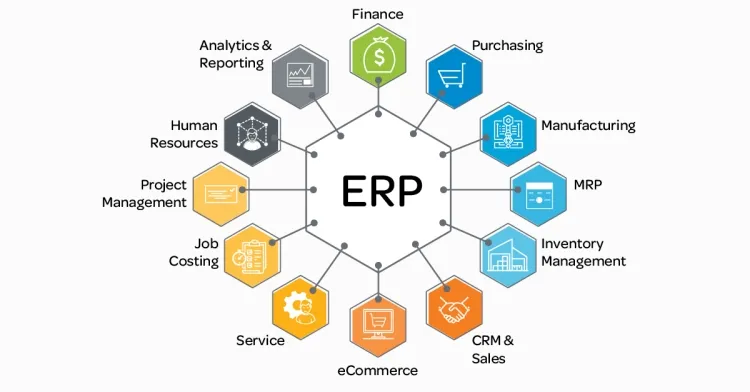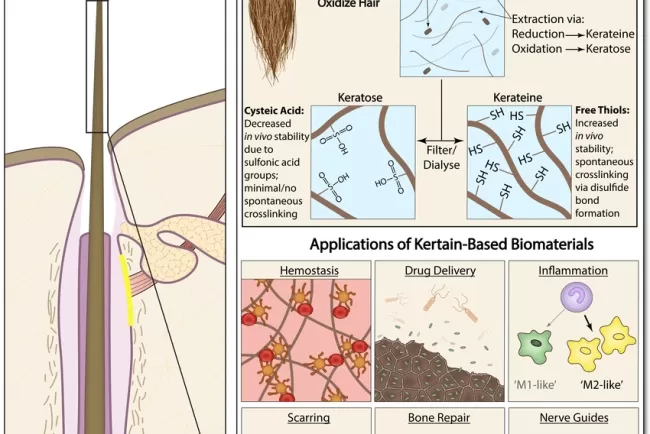Enterprise Resource Planning (ERP) Systems and Their Uses...!!!
ERP systems are powerful tools that help organizations streamline their operations, improve efficiency, and make informed decisions based on real-time data. By integrating various business functions into a single system, ERP systems provide a comprehensive view of organizational activities and enable better collaboration between departments.

Enterprise Resource Planning (ERP) Systems and Their Applications
Enterprise Resource Planning (ERP) systems are comprehensive software solutions designed to help organizations manage and optimize their operations by integrating core business processes. These systems provide a unified view of business activities, enabling efficient management and real-time data access for informed decision-making. ERP systems have become essential for businesses of all sizes and industries, assisting with activities such as accounting, procurement, project management, risk management, and supply chain operations.

What is ERP?
ERP systems integrate various business functions, such as finance, human resources (HR), procurement, supply chain management, sales, and manufacturing, into a single, cohesive system. By breaking down information silos and providing a single source of truth, ERP systems enable organizations to gain a holistic view of their operations and identify potential opportunities for growth and improvement. This integration facilitates better collaboration between departments, improved efficiency, cost savings, and enhanced decision-making capabilities.
Key Features of ERP Systems
-
Integration of Business Processes: ERP systems combine various business functions into a single, unified system, allowing seamless communication and collaboration between departments.
-
Real-Time Data Access: ERP systems offer real-time data access, enabling organizations to make informed decisions based on up-to-date information.
-
Scalability: ERP systems are scalable, meaning they can grow and adapt to the changing needs of the organization.
-
Customization: ERP systems can be customized to meet the specific needs of the organization, ensuring alignment with the company's goals and objectives.
-
Security: ERP systems provide robust security features to protect sensitive business data and ensure compliance with industry regulations.

Uses of ERP Systems
-
Finance Management: ERP systems assist organizations in managing their financial operations, including accounting, budgeting, and financial reporting. By integrating financial data into a single system, organizations can gain a comprehensive view of their financial health and make informed financial decisions.
-
Human Resources Management: ERP systems streamline HR processes, such as employee management, payroll, and benefits administration. This integration allows for better management of employee data and ensures compliance with labor laws and regulations.
-
Supply Chain Management: ERP systems optimize supply chain operations by providing real-time visibility into inventory levels, order processing, and supplier management. This integration helps organizations improve supply chain efficiency and reduce costs.
-
Procurement: ERP systems streamline procurement processes by automating purchase orders, supplier management, and inventory control. This integration helps organizations manage their procurement activities more efficiently and reduce procurement costs.
-
Project Management: ERP systems facilitate project management by providing tools for project planning, scheduling, resource allocation, and progress tracking. This integration helps organizations manage their projects more effectively and ensure timely project completion.
-
Risk Management: ERP systems help organizations manage risks by providing tools for risk assessment, mitigation, and compliance monitoring. This integration enables organizations to identify potential risks and take proactive measures to mitigate them.
-
Sales and Customer Relationship Management (CRM): ERP systems integrate sales and CRM processes, allowing organizations to manage customer interactions, sales orders, and customer data in a single system. This integration helps organizations improve customer satisfaction and drive sales growth.
-
Manufacturing: ERP systems optimize manufacturing operations by providing tools for production planning, inventory management, and quality control. This integration helps organizations enhance manufacturing efficiency and reduce production costs.
ERP systems are powerful tools that help organizations streamline their operations, improve efficiency, and make informed decisions based on real-time data. By integrating various business functions into a single system, ERP systems provide a comprehensive view of organizational activities and enable better collaboration between departments. Whether it's finance management, HR, supply chain operations, or project management, ERP systems offer a wide range of benefits that can help organizations achieve their goals and stay competitive in the market.
What's Your Reaction?

















